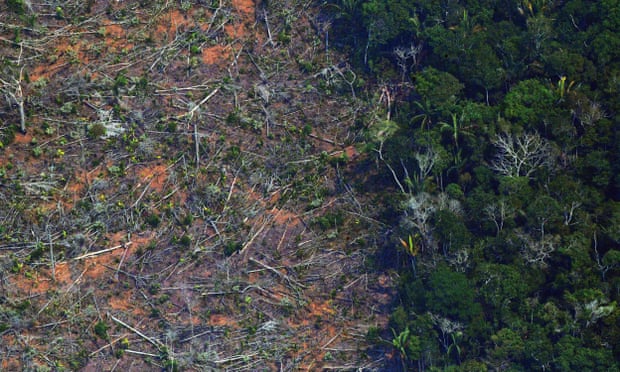Dismissal came days after release of new data showing increasing deforestation in the Brazilian Amazon
Brazil’s government has fired an official at the national space agency Inpe whose department is responsible for satellite monitoring of the Amazon rainforest, just three days after June deforestation data reflected a continued increase in degradation.
Lubia Vinhas was the general-coordinator of Brazilian space agency Inpe’s Earth Observation Institute, which is an umbrella for divisions that monitor the Amazon and panels to debate climate change with civil society organizations.
Vinhas was picked in 2018 for a four-year term but Marcos Pontes, Brazil’s science and technology minister, decided to fire her after two years and three months on the job. He did not explain why.
The timing of the dismissal – coming on the heels of June data – drew an outcry from environmentalists who saw a parallel with another high-profile firing at the same agency last year.
Jair Bolsonaro, Brazil’s president, is a critic of environmentalists and defends fostering more economic development in the Amazon, which many adversaries see as a nod to illegal miners and loggers.
In August, amid international outcry over Amazon wildfires, Bolsonaro accused the then-head of Brazil’s space research institute, Ricardo Galvão, of manipulating satellite deforestation data in order to undermine his administration. Galvão publicly countered the claims, and was fired.
Inpe figures published on Friday showed 400 sq miles (1,034 sq km) of deforestation in the Amazon in June, a new record for the month since data started being gathered in 2015.
Total deforestation in the Brazilian Amazon from January to June was 1,890 sq miles (3,069 sq km), up 25% from the same six-month period last year.
Outside observers are keeping close tabs on Brazil’s environmental stewardship just ahead of the so-called burning season, during which landholders use fire to clear brush and forest.
Bolsonaro put the army in charge of efforts to curb deforestation in May after last year’s fires pushed destruction to the highest level in 11 years. Yet data from Inpe show that it kept climbing.
Marcio Astrini, the executive-secretary of the Brazilian Climate Observatory, a coalition of civil society groups, alleged that the government has previously made clear its desire to intervene in Inpe.
“The removal of Lubia Vinhas could be an indication that the plan was never abandoned. This is happening as deforestation accelerates, when the administration needs to stop threats of divestment,” Astrini said in a statement.
Suely Vaz, the former head of environment regulator IBAMA, said before the release of the June data that the army isn’t using the technical planning and intelligence required, nor are they trained in such methods to stop deforestation. She added that it costs more than $10m a month for the army to operate in the Amazon – more than half what IBAMA spends on oversight in a year.
“Control of deforestation isn’t done by sending a lot of inexperienced people to the field,” Vaz said. “They can help, but the operations need to be conducted by environmental authorities.”

